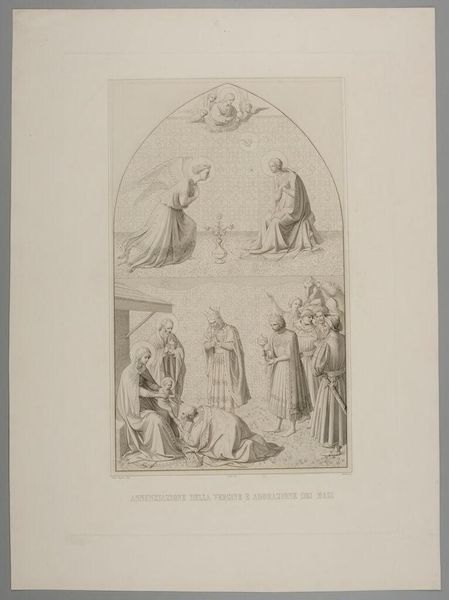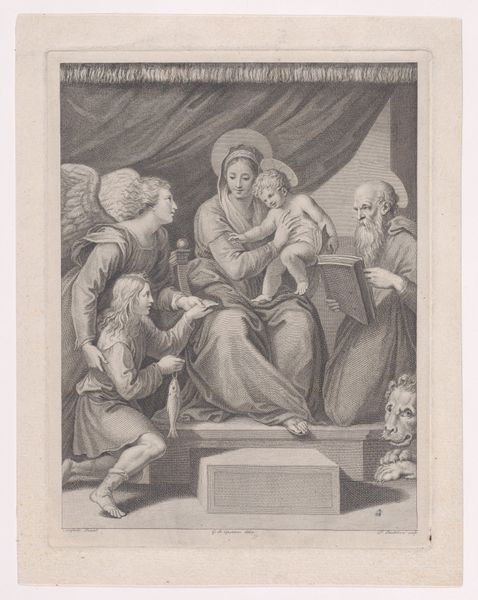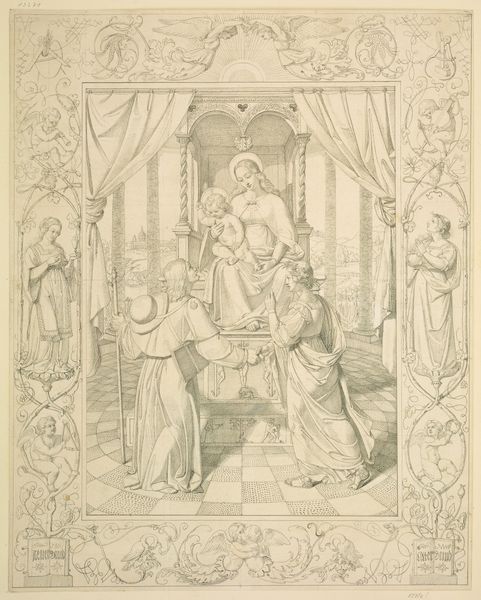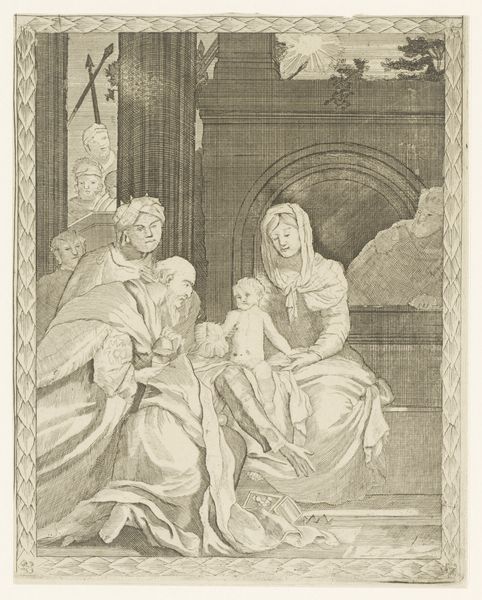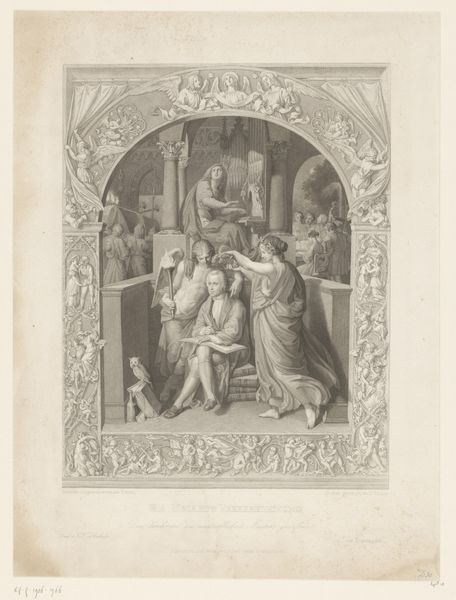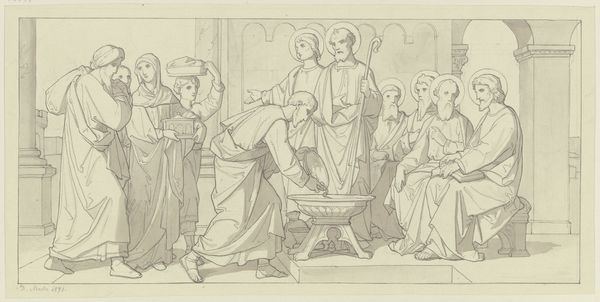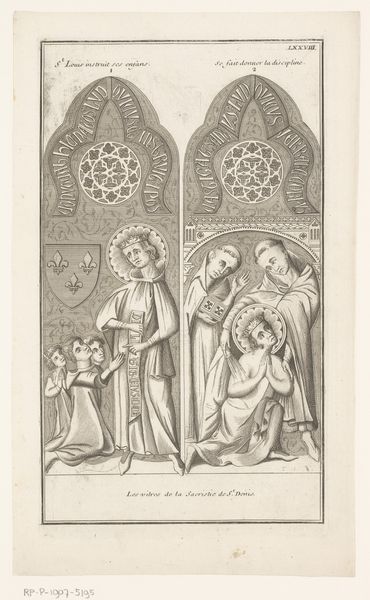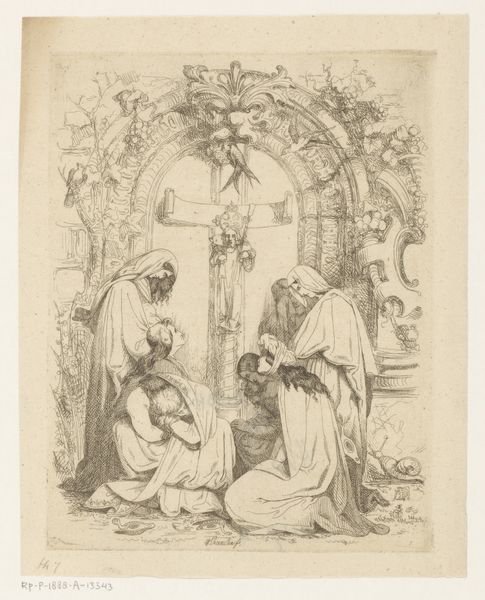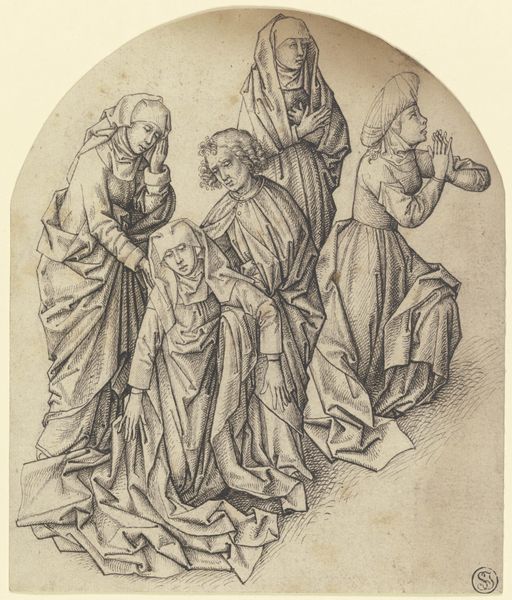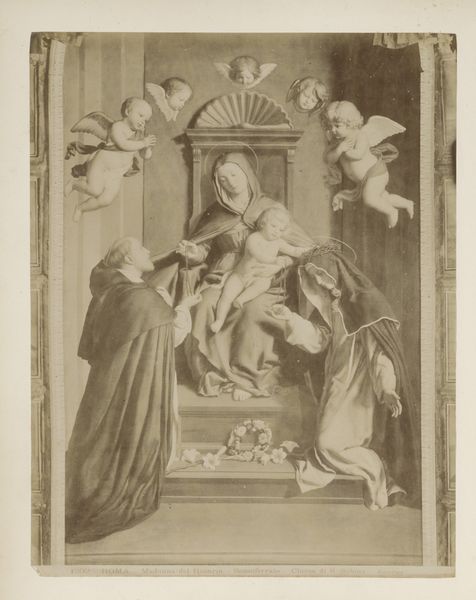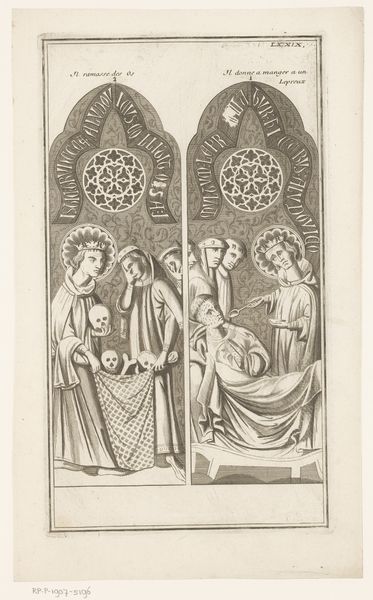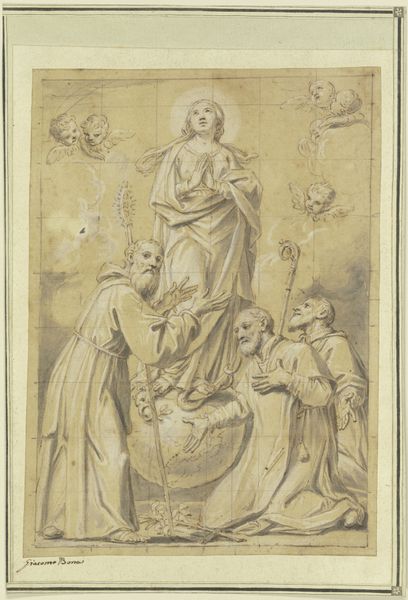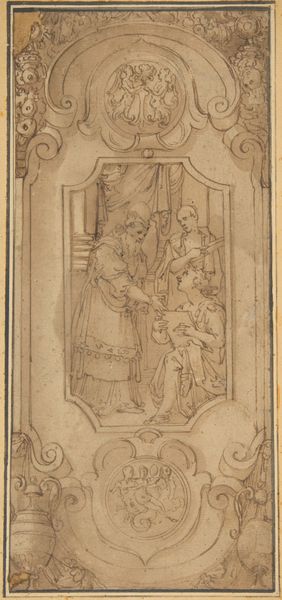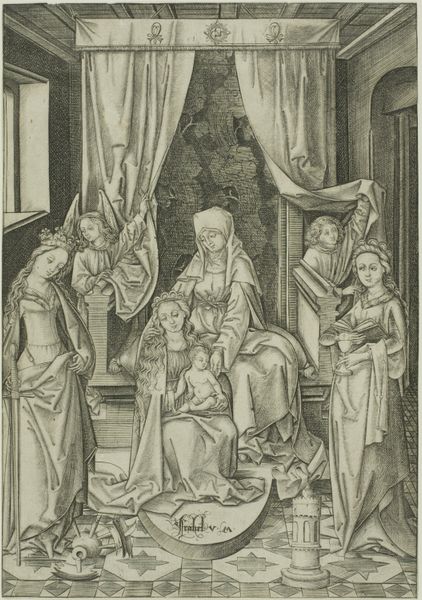
Copyright: CC0 1.0
Curator: This is Friedrich August Ludy's "Hagar and Ishmael," housed here at the Harvard Art Museums. The somber tones give an immediate sense of gravity, wouldn't you say? Editor: Indeed. I'm struck by the division within the composition. Look at how Abraham gestures, seemingly ushering Hagar and Ishmael away while a veiled sorrow blankets the scene. Curator: It's about the social context of banishment, isn't it? Consider the means of production here. The printmaking process allowed for dissemination, perhaps influencing perceptions of class and social standing. Editor: Absolutely. The figures are archetypes here – Hagar, the outcast mother, Ishmael, the displaced son. Ludy uses these figures to evoke empathy, tapping into universal experiences of loss and exclusion. Curator: But the material reality is more nuanced. The paper itself, the ink used to create this image—these elements speak to the economics and labor practices of art production. Editor: True, but the symbolic weight! The haloed Abraham, the protective embrace of Hagar—these are instantly recognizable symbols, charged with religious and cultural significance. Curator: A fascinating tension between the material and the mythical. Editor: Absolutely. It’s a window into the past.
Comments
No comments
Be the first to comment and join the conversation on the ultimate creative platform.
